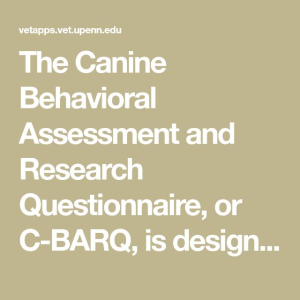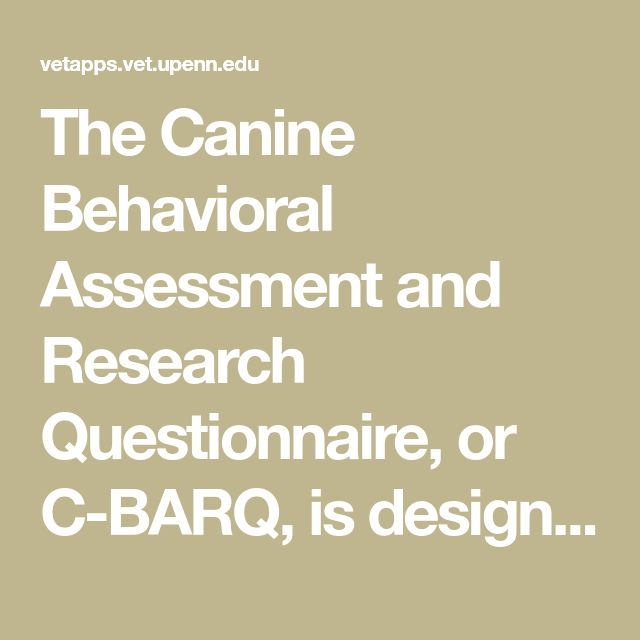Katie Kitamura is an acclaimed novelist who recently published her fifth work, “Audition,” which intricately weaves themes of horror and performance into the intricate tapestry of midlife uncertainty. As the author prepares for a discussion at the Harvard Humanities Center, she reflects on how the uncanny elements in her narratives echo the complex emotional landscape of contemporary life. With a keen interest in the subtleties of human relationships, Kitamura explores how performance shapes our identities, making her books resonate with readers who crave depth and introspection. The connection between her writing and the horror genre offers a unique lens through which to examine the often unsettling realities of family dynamics. As a writer, teacher, and recipient of a 2025 Guggenheim Fellowship, Katie Kitamura continues to challenge perceptions of literature, engaging her audience in thought-provoking dialogue.
In the realm of contemporary fiction, Katie Kitamura stands out as a distinctive voice known for incorporating elements of fright and performance art into her storytelling. Her novel, “Audition,” delves into the complexities of midlife, mirroring the fears and uncertainties that many face today. The Harvard Humanities Center is set to host an engaging conversation with this notable author, where she will explore her approach to writing and the impact of horror on her narratives. Kitamura’s work invites readers to reconsider the malleability of their identities through the lens of theatricality and introspection. By engaging with themes such as personal performance and the dread of the unknown, she expertly crafts stories that resonate with the audience on a profound level.
The Influence of Horror in ‘Audition’ by Katie Kitamura
In her latest novel, “Audition,” Katie Kitamura masterfully intertwines the elements of horror within a contemporary narrative, showcasing how real psychological fears can manifest in a seemingly normal setting. The premise revolves around the life of a mother grappling with uncertainty in her midlife, which echoes the psychological tension often found in horror literature. As readers delve into the story, they find a profound exploration of personal dread—what happens when the closest relationships become sources of confusion and fear? Kitamura has effectively brought this distinctly eerie emotion to the forefront, allowing the essence of horror to permeate a tale that examines both the complexities of familial connections and individual identity in a metropolitan environment.
Horror serves as an apt framework for Kitamura’s analysis of domestic life, as both settings often reveal unsettling truths. The uncanny feeling of familiar figures transforming into strangers plays a critical role in her narrative. Drawing inspiration from classics like “Rosemary’s Baby,” Kitamura crafts an atmosphere where psychological tension is palpable, emphasizing that true horror often lies in the unknown aspects of our everyday relationships. This merging of horror and realism invites readers to ponder their own lives, questioning the things they might overlook in their intimate connections.
Katie Kitamura’s Exploration of Performance and Privacy
Katie Kitamura’s work frequently probes the intricate theatre of daily life, where individuals perform roles in personal and professional settings. In “Audition,” the protagonist is an actor, which allows for a layered exploration of how performance shapes both identity and interpersonal relationships. Kitamura poses intriguing questions about the nature of self-representation, suggesting that every interaction is imbued with a certain degree of performance. Through her nuanced storytelling, she emphasizes that the lines between authenticity and play-acted roles can blur, leading to a chilling realization that one may not truly know those closest to them.
Moreover, Kitamura challenges the myth of complete transparency in relationships. As she discusses in interviews, the ideal of full disclosure can be not only unrealistic but potentially detrimental. The notion that every facet of one’s being must be shared can infringe upon the essential privacy that nurtures individuality. By exposing the tensions of proximity and distance in relationships, Kitamura affirms the necessity of privacy—how holding certain thoughts and feelings close can contribute to deeper connections, despite their elusive nature. This dynamic between performance and privacy stands as a critical theme in her narrative.
The Relevance of ‘Audition’ in Today’s Cultural Landscape
“Audition” emerges amid a cultural renaissance where literature often reflects the zeitgeist of its time. Written during the pandemic, Kitamura’s novel inadvertently embodies the themes of confinement and isolation, mirroring the collective societal struggles experienced by many. The characters’ grappling with personal boundaries and domestic space resonates powerfully during a time when physical proximity has often invoked both comfort and claustrophobia. As the novel navigates these contemporary dilemmas, it also revives discussions on the horror of the known becoming unknown—how people can feel alienated within their homes.
Through its exploration of these Modern fears, “Audition” asserts the continued importance of literature in processing societal upheavals. Kitamura advocates for fiction as a powerful medium for articulating and conceiving new realities—where readers are urged to confront uncertainties that mirror their own circumstances. This reflects a core tenet in her teaching at the Harvard Humanities Center: the ability of storytelling to forge connections, inspire empathy, and provide a creative outlet for navigating the complexities of human experience.
Katie Kitamura and the Art of Writing
Katie Kitamura not only excels in fiction but is also a passionate educator, imparting her knowledge to emerging writers at New York University. Her dedication to the craft is deeply intertwined with her belief in the power of storytelling. In her view, writing serves as both a mirror and a lens, allowing individuals to reflect on their reality while simultaneously exploring imaginative possibilities. As she articulates in her interviews, the act of writing is about more than mere words on a page; it’s about honing one’s ability to perceive and articulate the nuanced layers of experience, particularly during turbulent times.
Kitamura emphasizes that writing fiction is crucial, especially when faced with societal challenges. Her encouragement to students reflects her conviction that literature can challenge prevailing narratives, provoke discussion, and inspire change. By championing the importance of English major studies, she confirms that the skills acquired through literary analysis—critical thinking, empathy, and communication—are essential in an increasingly complex world. In this way, Kitamura embodies the spirit of a writer who is not only committed to her own art but also dedicated to fostering the next generation of storytellers.
The Themes of Identity and Motherhood in ‘Audition’
Central to the narrative of ‘Audition’ is the theme of identity, particularly as it relates to motherhood. Katie Kitamura intricately weaves the challenges of the mother’s role with the existential questions that arise in midlife. The character’s struggle with her identity—not just as an actor, but as a mother—mirrors the complexities faced by many women today. This exploration of character leads readers to question how societal expectations and personal desires often clash, creating tension that is both relatable and haunting.
Kitamura’s portrayal of the mother figure touches upon the prevalent theme of performance in personal relationships. As the character grapples with insecurity and self-doubt, it becomes clear that motherhood often requires a performance of strength and composure. The uncanny moments she faces, where her familial relationships feel all-consuming, reflect the profound anxieties woven into the daily fabric of motherhood. This unique fusion of identity and horror illustrates how Kitamura’s writing resonates with contemporary conversations around motherhood and the societal pressures that accompany it.
Literature and Society: Katie Kitamura’s Perspective
In her conversations and interviews, Katie Kitamura articulates a vital commentary on the role of literature within society, particularly during times of crisis. Literature, particularly fiction, offers a sanctuary for reflection and understanding, allowing audiences to grapple with complex social issues through the lens of storytelling. Kitamura emphasizes that novels serve not only to entertain but also to shine a light on discomforting truths that might otherwise remain concealed. In her view, the act of engaging with literature can foster empathy and awaken critical societal dialogues.
As literary works are increasingly challenged in various academic and social settings, Kitamura’s defense of fiction as a bulwark against oppressive narratives becomes particularly significant. She argues that literature has the power to question authority and inspire action, a stance that underscores the relevance of her work amid contemporary socio-political dynamics. By encouraging a culture of reading and intellectual exploration, she champions the capacity of literature to unite individuals and provoke transformative thinking, which is profoundly necessary in today’s world.
Navigating the Uncanny in Everyday Relationships
Katie Kitamura’s exploration of the uncanny—those unsettling feelings that arise within familiar settings—offers a captivating lens through which to evaluate our everyday relationships. In ‘Audition,’ characters grapple with a haunting sense of detachment from those they have known for years, highlighting how personal dynamics can shift dramatically over time. This dissonance draws unmistakable parallels to the uncanny, a concept often explored in horror literature, wherein much of the terror lies in discovering unfamiliarity in the familiar. Kitamura’s narrative smartly employs this theme, inviting readers to consider their own experiences of alienation.
Through innovative storytelling, Kitamura underscores that the uncanny can serve as a reflection of deeper societal anxieties—such as the fear of isolation amid overwhelming closeness. By presenting these themes through her characters’ experiences, she expertly challenges readers to confront their own perceptions of familiarity and the uncertainties embedded in their relationships. As such, ‘Audition’ becomes not just a personal narrative but a broader commentary on the complexities of human interaction and the emotional undercurrents that often lurk beneath the surface.
Interview Insights: Katie Kitamura on Fiction and Reality
In her interviews, Katie Kitamura often discusses the intricate relationship between fiction and reality, particularly how the two realms influence each other. Her reflections highlight the necessity of storytelling in capturing the nuances of human experience, especially in response to evolving societal contexts. By sharing her personal writing journey and artistic inspirations, Kitamura emphasizes that fiction can serve as a method to process real-world emotions and challenges. This interplay between the lived experience and artistic expression is evident in her latest work, ‘Audition,’ where she channels the ambiance of contemporary anxieties shaped by a global pandemic.
Kitamura’s insights affirm the potency of fiction as a tool for understanding and grappling with the complexities of life. In a time when reality feels increasingly fragmented, her belief in the impact of literature on perception provides valuable commentary on the importance of artistic endeavors. This dynamic contributes to the overarching theme of her work: that navigating the depths of horror, identity, and relationships allows not just for personal reflection but for connection in a larger societal context.
The Future of Fiction: Perspectives from Katie Kitamura
As a writer and educator, Katie Kitamura holds a unique stance on the future of fiction in a rapidly changing world. In her discussions, she asserts the importance of adaptability within literature as new technologies and societal changes shape narrative forms. Rather than viewing these shifts as threats, Kitamura sees potential opportunities for innovation in storytelling. This encourages both new and established writers to explore creative avenues that resonate with contemporary realities and amplify diverse voices, reinforcing the relevance of fiction as a mode of communication in our increasingly interconnected society.
Kitamura’s conviction that literature can create profound connections among individuals speaks to her hope for the future of storytelling. She envisions a literary landscape where fiction continues to challenge norms and provoke dialogues, enabling readers to engage with the world in complex and meaningful ways. This optimistic outlook is crucial in an era marked by division and disconnection, positioning literature as a vital force that can inspire empathy and understanding across cultural divides.
Frequently Asked Questions
What themes does Katie Kitamura explore in her novel ‘Audition’?
In ‘Audition’, Katie Kitamura delves into themes of uncertainty in midlife, familial relationships, and the nature of performance. The central character’s experiences reflect a nuanced examination of identity, privacy, and the eeriness that can accompany familiarity, providing readers with a gripping look into the complexities of life.
How does Katie Kitamura incorporate horror elements into her writing?
Katie Kitamura incorporates horror elements in her latest novel ‘Audition’ by exploring psychological fears related to identity and familiarity. Drawing inspiration from works like ‘Rosemary’s Baby’ and ‘The Haunting of Hill House’, Kitamura crafts unsettling moments that challenge the character’s understanding of her family and surroundings.
What is the significance of performance in Katie Kitamura’s writing?
Performance is a crucial theme in Katie Kitamura’s work, particularly in ‘Audition’. She examines how individuals present themselves and adapt to their roles in everyday life. This exploration reveals the vulnerability of identity and the gaps between public persona and private self, making readers ponder the nature of connection and understanding.
How did the pandemic influence Katie Kitamura’s writing of ‘Audition’?
Although ‘Audition’ does not explicitly mention the pandemic, Katie Kitamura acknowledges that the book, written during that time, captures elements of confinement and familial tension that resonate with pandemic experiences. The atmosphere of uncertainty and close quarters in the novel reflects broader societal themes relevant to that period.
What can readers expect from Katie Kitamura’s interview at the Harvard Humanities Center?
At the Harvard Humanities Center, readers can expect Katie Kitamura to discuss her latest novel ‘Audition’ with significant insights on performance, privacy, and the influence of horror in literature. Her conversation with Claire Messud promises to delve deeply into the themes of her work and her experiences as a novelist and educator.
What was Katie Kitamura’s early writing experience prior to ‘Audition’?
Before publishing ‘Audition’, Katie Kitamura gained recognition for her previous novels, including ‘Intimacies’ and ‘A Separation’. Her early writing explored intricate relationships and the human psyche, establishing her as a poignant voice in contemporary literature. ‘Audition’ builds on these foundations, enriching themes of midlife ambiguity and familial dynamics.
Does Katie Kitamura believe fiction writing has a societal impact?
Yes, Katie Kitamura believes that fiction writing has significant societal impact. In her teaching and discussions, she emphasizes the power of literature to provoke thought, foster connections, and challenge the status quo, especially during tumultuous times. She advocates for the value of storytelling as a means to imagine and create alternative realities.
How does Katie Kitamura view the relationship between language and power?
Katie Kitamura views language as a critical tool in understanding and shaping power dynamics. In her writings, she emphasizes the importance of precise language, arguing that the ability to articulate thoughts and experiences can serve as a form of resistance against oppression, highlighting the role of literature in societal discourse.
| Key Points | Details |
|---|---|
| Event Details | Katie Kitamura is speaking at the Mahindra Humanities Center, Harvard, with Claire Messud. |
| New Novel | Kitamura’s latest book, ‘Audition’, explores themes of performance and reality. |
| Horror Genre Influence | The novel contains horror elements, focusing on the uncanny aspects of family life. |
| Pandemic Influence | Written during the pandemic, the book reflects themes of confinement and social dynamics. |
| Performance Theme | Kitamura examines how identity is shaped through performance and personal relationships. |
| Significance of Fiction | Fiction plays a crucial role in understanding reality and envisioning new possibilities. |
| Personal Views | Kitamura values the complexities of privacy and the nuances of relationships. |
Summary
Katie Kitamura emphasizes the importance of fiction in today’s society, particularly in her novel “Audition”. As she discusses horror and performance, Kitamura provides insight into the human condition and the necessity of language as a means of connection. Her reflections on privacy and the challenges of understanding one another resonate deeply with contemporary audiences, making her work both relevant and profound.









